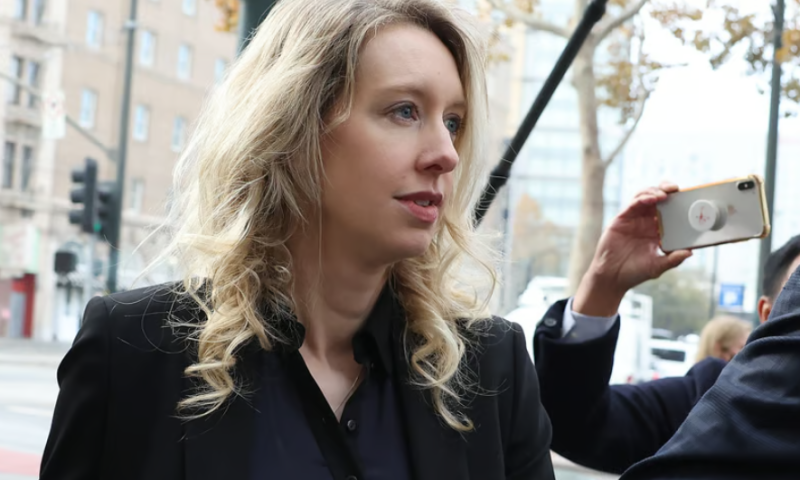Despite multiple attempts to put off the start of her 135-month prison sentence after being found guilty on four counts of defrauding investors in blood-testing startup Theranos, the time has come for Elizabeth Holmes to report to prison.
The ex-CEO turned herself in at the Federal Prison Camp in Bryan, Texas, on Tuesday, CNN reported. The judge in her case, Edward Davila of Northern California’s district court, had set the surrender date earlier this month, after an appeals court denied Holmes’ latest last-ditch effort to delay the sentence.
The Texas prison is a minimum-security, women-only facility about 100 miles northwest of Houston, where Holmes spent some of her childhood. It currently houses 655 women, according to the Federal Bureau of Prisons, some of whom are reportedly looking forward to befriending the disgraced tech founder, a current inmate recently told The Wall Street Journal.
During her more than 11 years at the facility, according to the prison’s handbook (PDF), Holmes will have access to 15-minute phone calls, 25-minute video calls and weekend and holiday visits with her family, which has recently grown to include 2-year-old son William and daughter Invicta, who was born earlier this year.
Holmes will also be required to work throughout her sentence, likely starting with a stint in food service before progressing to a post in a factory operated by Federal Prison Industries, the government bureau commonly known as UNICOR. Inmates with “large court-ordered financial obligations” are typically prioritized for UNICOR jobs, which pay between $0.23 and $1.15 per hour, according to the handbook; Davila has ordered Holmes and her former business partner Ramesh “Sunny” Balwani to pay a combined $452 million in restitution to several of Theranos’ biggest investors and partners.
In her spare time, Holmes may participate in continuing education classes, correspondence courses, apprenticeships and parenting classes and will also have access to a library, arts and leisure programs, recreation and wellness activities and more.
Though Holmes told The New York Times in a recent profile that she’s planning on continuing to develop new health-related innovations while she’s in prison—“I still dream about being able to contribute in that space,” she said—it won’t be in any formal capacity, since the handbook notes that inmates are prohibited from conducting businesses while behind bars.
Davila handed down Holmes’ 11-year sentence in November, several months after she’d been found guilty on four of 12 possible felony counts of fraud, all related to defrauding Theranos investors.
She’s spent the months since attempting to avoid reporting to prison. Holmes’ legal team claimed that she should be allowed to remain free while their appeal of the guilty verdicts is still in process; Davila denied that request, arguing in an April order that the appeal isn’t likely to result in a verdict reversal or a new trial for Holmes and upholding the previously set surrender date of April 27.

